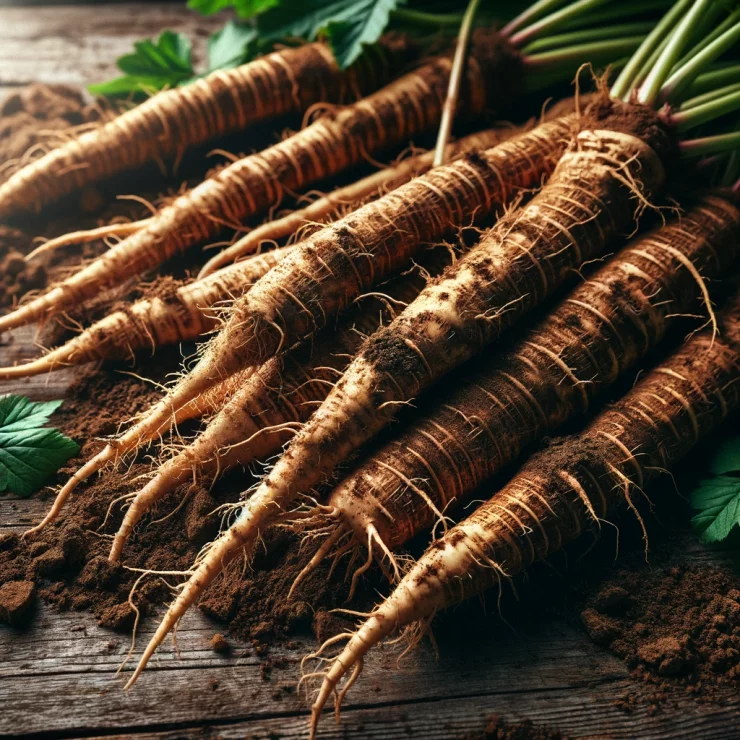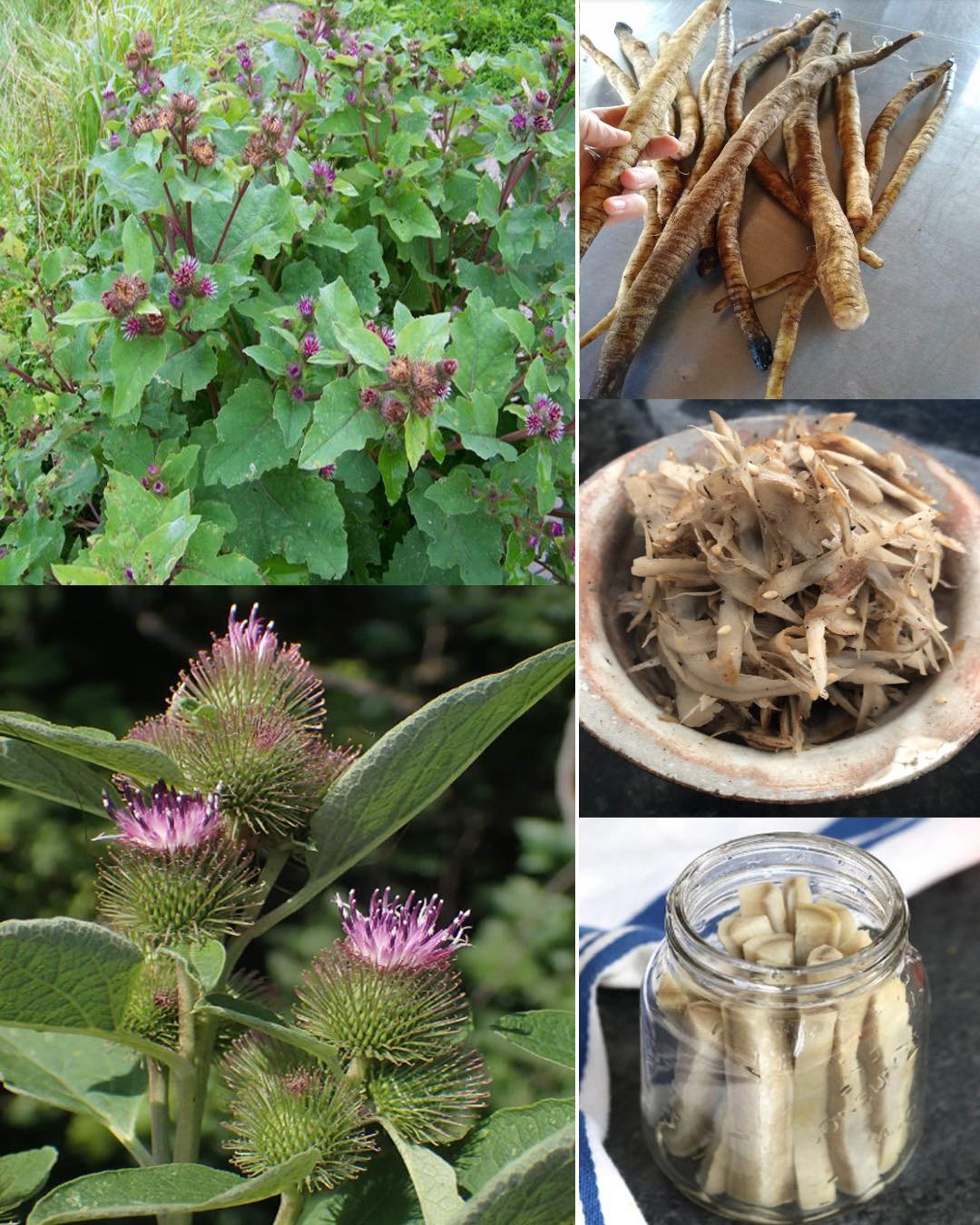Burdock, scientifically known as Arctium lappa, is a plant that holds a special place in traditional medicine and culinary practices across various cultures. While all parts of the burdock plant are utilized for different purposes, it is the root that stands out as particularly significant. In this article, we delve into the reasons why burdock roots are considered the most important part of the plant.

Rich Nutritional Profile:
One of the primary reasons for the importance of burdock roots lies in their rich nutritional profile. Burdock roots are a good source of essential nutrients, including vitamins such as vitamin B6, vitamin C, and vitamin E, as well as minerals like potassium, iron, and manganese. Additionally, burdock roots contain dietary fiber, which is beneficial for digestive health and helps regulate blood sugar levels.
Medicinal Properties:
Burdock roots have long been valued for their medicinal properties. In traditional herbal medicine, burdock roots are believed to have diuretic, detoxifying, and anti-inflammatory properties. They are often used to support liver and kidney function, promote detoxification, and alleviate conditions such as arthritis and skin disorders like eczema and acne.
Detoxification and Cleansing:
The detoxifying properties of burdock roots make them particularly valuable in supporting overall health and well-being. Burdock roots contain compounds known as polyphenols and antioxidants, which help neutralize harmful free radicals in the body and support the body’s natural detoxification processes. Regular consumption of burdock root tea or incorporating burdock root into soups and stir-fries can aid in cleansing the body and promoting vitality.

Digestive Health:
Burdock roots are also prized for their role in promoting digestive health. The dietary fiber present in burdock roots acts as a prebiotic, nourishing beneficial bacteria in the gut and supporting a healthy microbiome. This can help improve digestion, relieve constipation, and reduce the risk of gastrointestinal issues such as bloating and gas.
Culinary Uses:
In addition to their medicinal properties, burdock roots are valued for their culinary versatility. In many cuisines, particularly in Asian cultures, burdock roots are used in a variety of dishes, including stir-fries, soups, stews, and salads. Their crunchy texture and earthy flavor add depth and complexity to recipes, making them a favorite ingredient among chefs and home cooks alike.
Burdock roots are indeed the most important part of the plant, thanks to their rich nutritional profile, medicinal properties, detoxification benefits, and culinary versatility. Whether enjoyed for their health-promoting properties or their delicious taste and texture, burdock roots continue to hold a special place in traditional medicine and culinary traditions around the world. Incorporating burdock roots into your diet can be a simple yet effective way to support overall health and well-being.
News
(N) Wolverhampton residents remember former One Direction star Liam Payne as “a lovely lad”
Los residentes de Wolverhampton rindieron homenaje a la ex estrella de One Direction, Liam Payne, después de que el cantante de 31 años muriera en un hotel en Argentina. La estrella del pop, que saltó a la fama en The…
(N) The Moment Liam Payne Fell From A Hotel Balcony Was Captured On Surveillance Camera
Liam Payne fell to his death from the third-floor balcony at the CasaSur Palermo Hotel in Buenos Aires, Argentina, this month. It has been claimed that he fell after ‘fainting’ An Argentinian journalist has made a shocking claim about the…
(N) Liam Payne Delights Fans By Revealing What Son Bear Looks Like In Ultra-Rare Update
Former One Direction star Liam Payne shares son Bear with ex Cheryl Cole but the pair choose to keep him out of the public eye Liam Payne reveals what his son Bear, 7, looks like now in a rare update…
(N) Liam Payne And Cheryl Made Tough Decision To Make Sure Their Son Bear Has A ‘Normal’ Life
Since his birth in 2017, Bear Payne, the son of singer Liam Payne and pop star Cheryl, has captured the hearts of fans around the world. Yet, despite their high-profile lives, both Liam and Cheryl have made it clear that…
(N) Liam Payne’s girlfriend, Katie Cassidy, cried and shared: “Why do people say I left, I was there, saw everything. He hugged me, burst into tears, looked at me angrily, then rushed out to the balcony
In an emotional reveal, Liam Payne’s girlfriend, Katie Cassidy, has shared a deeply personal moment between the two that has shocked fans and sparked widespread speculation. Addressing recent rumors and accusations, Katie opened up about a tense encounter with Liam,…
(N) Breaking News: He Died Unfairly Zayn Broke Down After Attending Liam Payne’S Funeral And Suddenly Declared On His Personal Page That Liam’S Death Was “Arranged” By Someone, Not An Accident…
In an unexpected and heartbreaking development, former One Direction member Zayn Malik made a shocking declaration on his personal social media following the funeral of his close friend and bandmate, Liam Payne. In an emotional post, Zayn revealed what many…
End of content
No more pages to load











